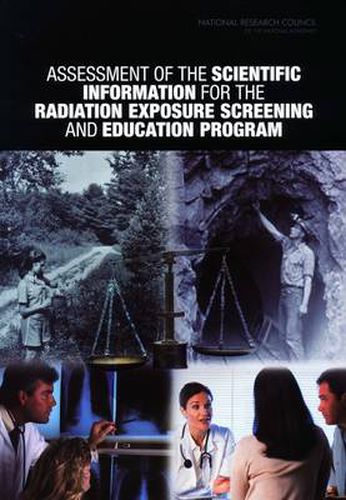Readings Newsletter
Become a Readings Member to make your shopping experience even easier.
Sign in or sign up for free!
You’re not far away from qualifying for FREE standard shipping within Australia
You’ve qualified for FREE standard shipping within Australia
The cart is loading…






The Radiation Exposure Compensation Act (RECA) was set up by Congress in 1990 to compensate people who have been diagnosed with specified cancers and chronic diseases that could have resulted from exposure to nuclear-weapons tests at various U.S. test sites. Eligible claimants include civilian onsite participants, downwinders who lived in areas currently designated by RECA, and uranium workers and ore transporters who meet specified residence or exposure criteria. The Health Resources and Services Administration (HRSA), which oversees the screening, education, and referral services program for RECA populations, asked the National Academies to review its program and assess whether new scientific information could be used to improve its program and determine if additional populations or geographic areas should be covered under RECA. The report recommends Congress should establish a new science-based process using a method called probability of causation/assigned share (PC/AS) to determine eligibility for compensation. Because fallout may have been higher for people outside RECA-designated areas, the new PC/AS process should apply to all residents of the continental US, Alaska, Hawaii, and overseas US territories who have been diagnosed with specific RECA-compensable diseases and who may have been exposed, even in utero, to radiation from U.S. nuclear-weapons testing fallout. However, because the risks of radiation-induced disease are generally low at the exposure levels of concern in RECA populations, in most cases it is unlikely that exposure to radioactive fallout was a substantial contributing cause of cancer.
$9.00 standard shipping within Australia
FREE standard shipping within Australia for orders over $100.00
Express & International shipping calculated at checkout
The Radiation Exposure Compensation Act (RECA) was set up by Congress in 1990 to compensate people who have been diagnosed with specified cancers and chronic diseases that could have resulted from exposure to nuclear-weapons tests at various U.S. test sites. Eligible claimants include civilian onsite participants, downwinders who lived in areas currently designated by RECA, and uranium workers and ore transporters who meet specified residence or exposure criteria. The Health Resources and Services Administration (HRSA), which oversees the screening, education, and referral services program for RECA populations, asked the National Academies to review its program and assess whether new scientific information could be used to improve its program and determine if additional populations or geographic areas should be covered under RECA. The report recommends Congress should establish a new science-based process using a method called probability of causation/assigned share (PC/AS) to determine eligibility for compensation. Because fallout may have been higher for people outside RECA-designated areas, the new PC/AS process should apply to all residents of the continental US, Alaska, Hawaii, and overseas US territories who have been diagnosed with specific RECA-compensable diseases and who may have been exposed, even in utero, to radiation from U.S. nuclear-weapons testing fallout. However, because the risks of radiation-induced disease are generally low at the exposure levels of concern in RECA populations, in most cases it is unlikely that exposure to radioactive fallout was a substantial contributing cause of cancer.